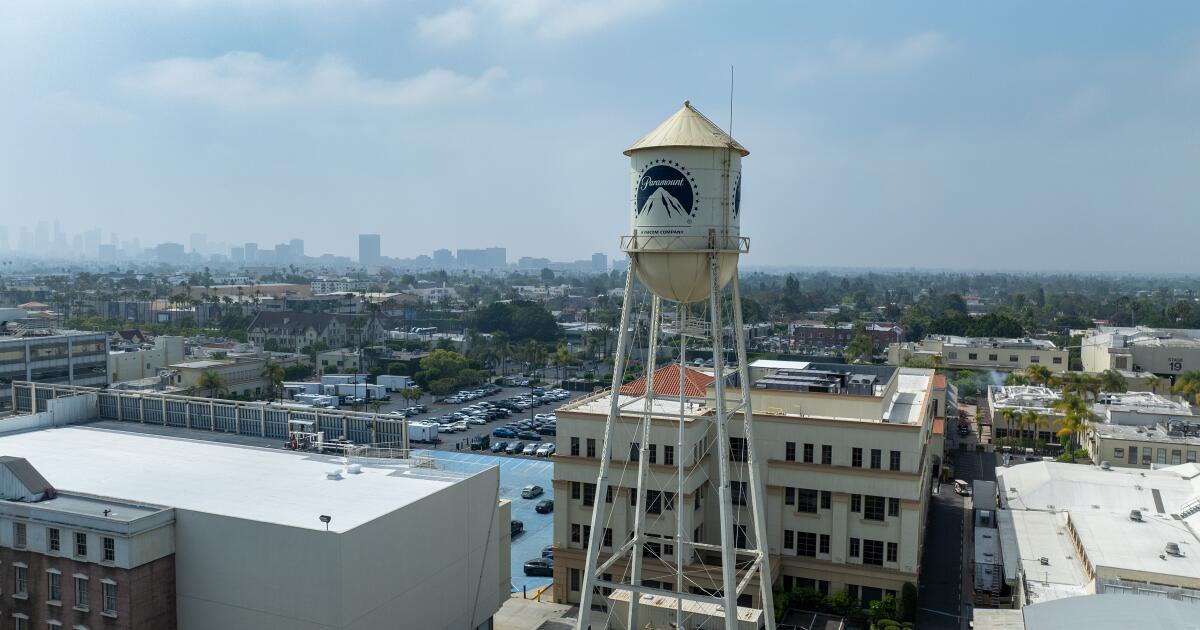Warner Bros. Discovery says its reviewing Paramount’s new bid
Warner Bros. Discovery said Tuesday that it was “reviewing” a revised offer from Paramount Skydance — the latest twist in the high-profile auction to claim one of Hollywood’s corporate jewels.
The company did not provide any details of Paramount’s bid. Paramount separately confirmed that it submitted a revised offer.
In a short statement, Warner acknowledged that Paramount had submitted a modified proposal to buy all of the company’s outstanding shares and that board members were evaluating the offer “in consultation with our financial and legal advisors.”
“We will update our shareholders following the Board’s review,” Warner said.
The Larry Ellison-backed Paramount had been facing a late Monday night deadline to boost its bid to claim the company that owns CNN, HBO, TBS and the storied Warner Bros. movie and film studios. Last week, the auction’s winning bidder — Netflix — agreed to allow Warner Bros. Discovery to reopen talks with Paramount for seven days to determine whether Paramount would bring more money to the table.
Warner instructed Paramount to present its “best and final” offer.
Netflix has matching rights should Warner Bros. Discovery reverse course and accept the Paramount bid.
The move comes nearly three months after Warner’s board unanimously agreed to sell HBO and studio assets, including its deep library that includes Superman, Harry Potter, Scooby-Doo, “Game of Thrones,” and “The Big Bang Theory,” to Netflix for $27.75 a share.
Netflix’s deal, valued at $82.7 billion, does not include Warner’s basic cable channels, including CNN, TBS and HGTV.
Those channels are slated to be spun off to a new company later this year.
But Paramount, managed by scion David Ellison, has repeatedly cried foul, saying its cash bid for all of Warner Bros. Discovery, including the Warner cable channels, would be more lucrative for shareholders. Paramount, which enjoys friendly relations with President Trump, has also boasted that it has a more certain path to win U.S. regulatory approval compared to Netflix.
But Warner Bros.’ board has stuck with Netflix’s bid, saying the streaming giant’s financing was more secure.
“The Netflix merger agreement remains in effect, and the Board continues to recommend in favor of the Netflix transaction,” Warner said in its Tuesday statement.
Warner Bros. Discovery told Paramount last week that it expected the billionaire Ellison to put more money into the deal.
Paramount has previously said that the tech billionaire would guarantee more than $41 billion in equity financing that was needed to pull of the more than $108-billion take-over.
Under Paramount’s previous offer, the Ellison family was planning to contribute about $12 billion. Another $24 billion was expected to come from the royal families from Saudi Arabia, Qatar and Abu Dhabi.
In recent weeks, Paramount agreed to cover a $2.8 billion break-up fee that Warner would owe Netflix should Warner walk away from the Netflix deal. Paramount also suggested that it would increase its offer to at least $31 a share.
The move comes amid heightened political interest in the monumental deal that would reshape Hollywood.
The Department of Justice is investigating whether a Netflix takeover, or Paramount’s alternative bid, would harm competition.
Republican lawmakers have been critical of the Netflix deal, saying it would blunt competition.
President Trump has said he didn’t plan to get involved in the investigation, but over the weekend he threatened Netflix, writing on social media that Netflix must fire Susan Rice, a former high-level Obama and Biden administration official, from its board or “pay the consequences.”
Warner Bros. Discovery is consulting with investment bankers from Allen & Company, J.P. Morgan and Evercore and the law firms Wachtell Lipton and Debevoise & Plimpton.
